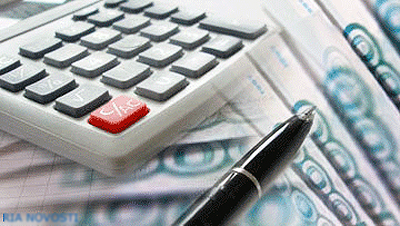RBTH: SPIEF 2016: Russia will attract only the best foreign technologies

Russia plans to set up a new presidential council to promote economic innovation, as business deals are unveiled.
(Russia Beyond the Headlines – rbth.ru – ALEXEI LOSSAN, RBTH – June 21, 2016)
Participants in the St. Petersburg International Economic Forum (SPIEF) have signed agreements worth $15.8 billion, the executive secretary of its organizing committee, Anton Kobyakov, has announced. The official results of the forum will be released later, Russian state news agency RIA Novosti reports.
The forum was the venue for the signing of 332 publicly announced agreements, compared with 205 – worth $4.5 billion – that were signed last year. Russian and Italian companies alone signed contracts worth $1.3 billion at this year’s forum.
New direction
“Last year, foreign partners had their concerns as regards the future of the Russian economy. However, now it is clear that it has adapted to the new conditions. This year delegates to the forum are openly saying: ‘Let’s do something,'” VTB Asset Management managing director Vladimir Pankratov told RBTH.
The forum has attracted interest from Western and Asian companies alike, Panktratov said. Its list of delegates featured the heads of U.S. oil giant ExxonMobil and Italy’s Eni, with the founder of Alibaba, Jack Ma, attending the St. Petersburg forum for a second year in a row. Other guests at SPIEF included European Commission President Jean-Claude Juncker, UN Secretary-General Ban Ki-moon, Italian Prime Minister Matteo Renzi, and Kazakh President Nursultan Nazarbayev.
Last year the forum’s most senior guest was Greek Prime Minister Alexis Tsipras, who had come to discuss a loan from Russia. At the time, analysts interpreted it as a boycott of the forum because of the Western sanctions imposed on Russia over the Ukrainian crisis.
The main theme of the 2016 forum was innovation, which Russian President Vladimir Putin focused on in its plenary session and that featured in most round-table discussions.
Innovation will result in economic growth irrespective of the political model of governance, the head of Russia’s biggest retail bank, state-owned Sberbank, former economic development minister, German Gref, said at a session entitled ‘Change or Die’. In any political system, increased productivity and improved quality management can be a priority, he said. For example, Russian IT giant Yandex is already computerizing metallurgical plants in Russia, its founder Arkady Volozh said. Business analysts McKinsey estimates the use of modern technologies in the metals industry can generate $115 billion annually, including $20-40 billion from improved productivity and $15 billion from savings on resources.
Political reform
To facilitate larger-scale implementation of innovation, the Russia government is establishing two new bodies, it was announced at the forum. The first – a Technological Development Agency – will focus on technology transfer and importing the best available practices into Russia. In particular, major companies will be required to use the best technologies that meet environmental standards. The new agency will help Russian companies to set up joint ventures with foreign enterprises. German firms are ready to be among the first to assist Russia, a joint Russian-German session at SPIEF heard. Germany’s business software giant SAP is already working with the Russian gas monopoly Gazprom. The company plans to support Russian start-ups.
The other new body is a Presidential Council for Strategic Development. It will become a “project office” for large-scale reforms. President Putin will head the council with Russian Prime Minister Dmitry Medvedev as his deputy. As the president announced at the forum, the council will focus on improving labor productivity in different sectors of the economy.
The idea to set up the council was first voiced by German Gref and former British Prime Minister Tony Blair at last year’s forum. Asked at the time whether he would be prepared to head such a council, Gref said ‘no’. According to RBC business daily, the new council may become an election platform for Vladimir Putin in 2018. Back in 2008, Dmitry Medvedev headed a similar platform – so-called “national projects” in four priority areas: housing construction, health care, education, and agriculture.
[Article also appeared at rbth.com/business/2016/06/21/spief-2016-russia-will-attract-only-the-best-foreign-technologies_604807]
